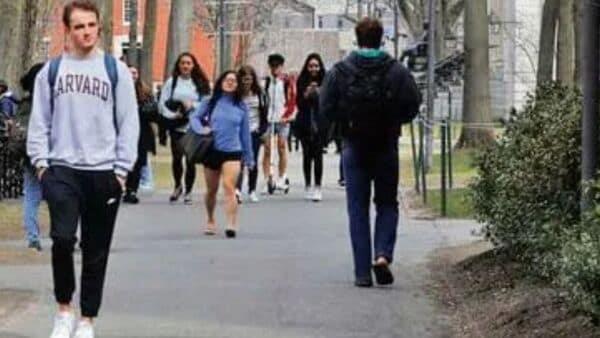
US Plans Overhaul Of Student Visas: 'Intent To Leave' Rule Could End Amid Declining International Enrolments - Report
Tighter visa scrutiny and immigration crackdowns have made securing a US study visa more challenging. According to the news report, these stricter rules have discouraged many prospective students, leading to a noticeable decline in international enrolments.
'Intent to Leave' rule under reviewOne of the most significant proposed changes concerns the repeal of the“Intent to Leave” rule, a requirement that has long shaped US student visa decisions.
What the rule meansDuring visa interviews, students must prove they intend to return to their home country after completing their studies. This often includes demonstrating non-immigrant intent by showing ties to their home country - including property ownership, family obligations, or career plans.
Students who cannot convincingly demonstrate this intent risk visa denial, even if their primary goal is education.
How the DIGNITY Act of 2025 addresses thisThe DIGNITY Act of 2025, introduced by Congresswomen María Elvira Salazar and Veronica Escobar with bipartisan support from 20 members, aims to abolish the“Intent to Leave” requirement.
If approved, student visas can no longer be denied solely because an applicant fails to prove they intend to leave the US after their studies.
However, the act does not change the rules for staying in the US after graduation. Students still must qualify through employment-based visas or other approved pathways.
Shift from Duration of Status to fixed termsThe Department of Homeland Security (DHS) has proposed changing the admission period for F, J, and I visa holders from“duration of status” (D/S) to a fixed time period, HT reported.
Under the current D/S system, students can remain in the US as long as they maintain valid student status.
What these changes mean for future studentsThe repeal of the“Intent to Leave” rule could make US student visas more accessible. But the move toward fixed-term admissions may introduce new challenges-potentially requiring students to apply for extensions more frequently or leave the country prematurely.
Also Read | Trump's H-1B visa stance 'nuanced and common-sense': Leavitt Legal Disclaimer:
MENAFN provides the
information “as is” without warranty of any kind. We do not accept
any responsibility or liability for the accuracy, content, images,
videos, licenses, completeness, legality, or reliability of the information
contained in this article. If you have any complaints or copyright
issues related to this article, kindly contact the provider above.


















Comments
No comment